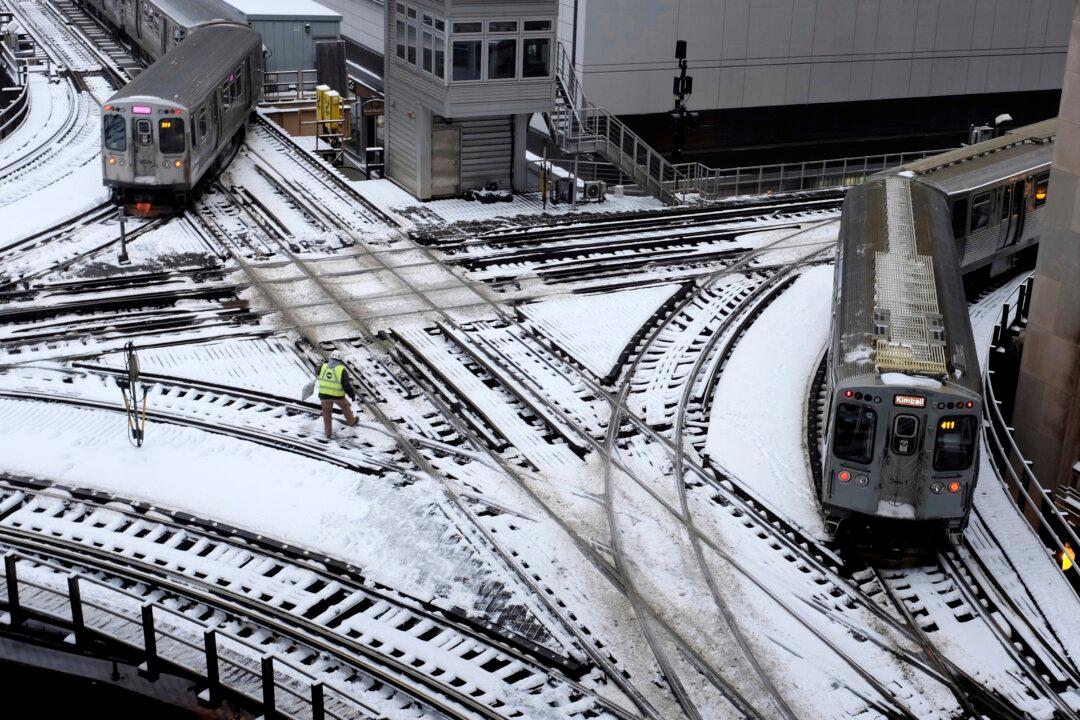Temperatures as low as minus 30 degrees Fahrenheit (minus 34 degrees Celsius) were recorded in Wisconsin on Wednesday morning as part of the “polar vortex” deep freeze affecting much of the Midwest.
Only one temperature station in Antarctica recorded a temperature lower than minus 30 degrees Fahrenheit, according to AccuWeather.





